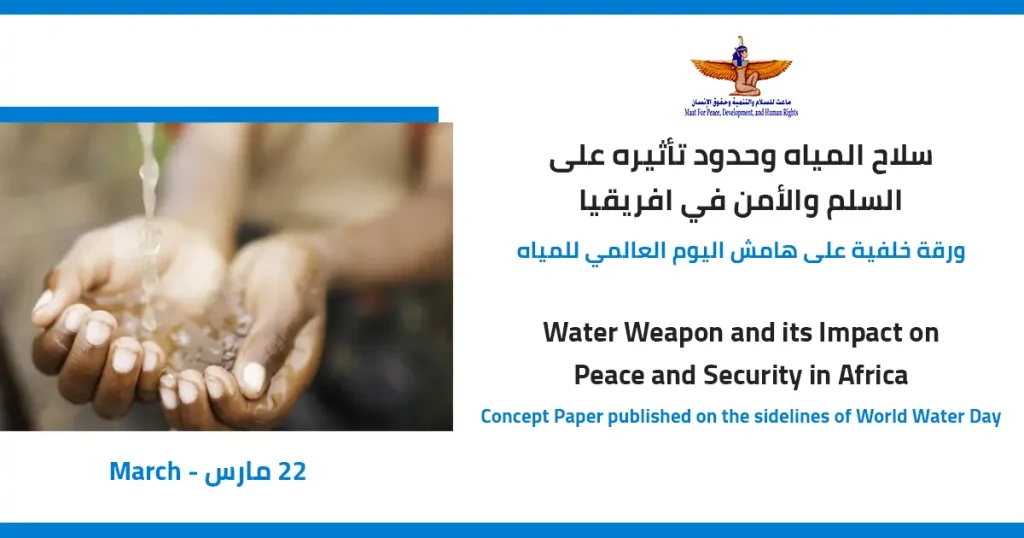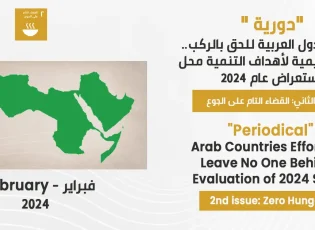“Ryoka”: We appreciate the efforts of the Nile for Peace Initiative to end the current dispute over the GERD project Nile for Peace to end the dispute over the Renaissance Dam project
"Al-Barbari": The principles of the regional partnership must be activated and efforts to achieve comprehensive benefits from the GERD for all must be increased
“Barbarian“: The principles of regional partnership must be activated and work to collectively benefit from the Renaissance Dam instead of disagreement
“Christopher”: Peaceful conflict management builds the capacity of individuals and social groups to understand and deal with conflicts
"equitable": Civil society organizations play an important and effective role in achieving and spreading peace instead of fighting over water
International experts from Finland, France, Sudan, Uganda, and Egypt stressed the need to reach a legally-binding agreement on the GERD. This came in conjunction with the International Day of Peace, as Maat for Peace, Development and Human Rights has held a virtual event, in cooperation with the Global Non-Combat Center and Åbo Akademi University in Finland, within the framework of the Peace, Mediation and Conflict Research (PEACE) Program.
The event was held under the title “Conflicts Water in times of climate change 'non-lethal alternatives to problem solving', which came mainly in order to discuss the situation of the problem of the Renaissance Dam and the impact of that crisis on the dynamics of the conflict between the three countries. region and the whole world.
During the event, Raymond Ryoka, an Ugandan environmental and health expert, said that the East African Community needs to work with Africa’s external partners, including donor countries, UN agencies, the World Bank, the European Union, and regional organizations such as the African Union, to mobilize funds and diplomatic support for the “Africa’s Water for Peace: Nile For Peace Initiative” to ensure its widespread and avoid potential regional conflicts over water and other resources in the Nile Basin.
On the other hand, Tayseer El-Faki, a consultant of health safety systems and risk measurement, indicated that there are many misconceptions about the safety of the dam, in addition to the scarcity of sources and studies on how to deal with the potential future risks of the GERD. El-Faki recommended the need to strengthen the principle of information and data circulation during the current crisis, as only two studies in this regard were published in 1994 and 2017. This makes the downstream countries vulnerable to any risks that may arise.
Hajar al-Barbari, a researcher at the Peace, Mediation and Conflict Research (PEACE) program in Finland, stressed the fact the the Nile River is vital to Egypt’s survival; it is the primary source of freshwater, as it provides the country with more than 90% of freshwater. During her speech, she stressed the importance of enhancing the principles of transparency and trust between Ethiopia, Egypt, and Sudan during the negotiation of the GERD project, and the importance of these negotiations as a step towards effective cooperation rather than conflics and disputes..
On the sidelines of the International Day of Peace, Christopher Barbie, Vice-President of the Legislative Assembly of Rougemont, France, explained that everyone has the right to participate in peacebuilding, and to learn how to live and let others live in peace. During his speech, he recommended all the countries of the Nile Valley region to promote the principles of peace and to ensure the provision of this inherent right to their peoples, particularly the peoples of the countries affected by the crisis of the Blue Nile River course, including Egypt, Sudan, and Ethiopia.
On the other hand, Ms. Hajar Monsif, director of the African Affairs and Sustainable Development Unit at Maat for Peace, commented on the central role played by civil society organizations in the issue of the water dispute, adding that these organizations have made remarkable efforts in the GERD crisis in particular, and the fruit of those efforts has been culminated with the launch of the document “The Nile for Peace Initiative”, which calls for reaching a legally-binding agreement that preserves the rights of all and guarantees peace and stability, not only to deal with the GERD crisis in the Nile Valley but also to deal with any water conflict in general.
It is worth mentioning that the participants have stressed the need for achieving peace that is based on dialogue and constructive negotiation within a time frame, is the only way out of the current dispute between the Nile Basin countries.











